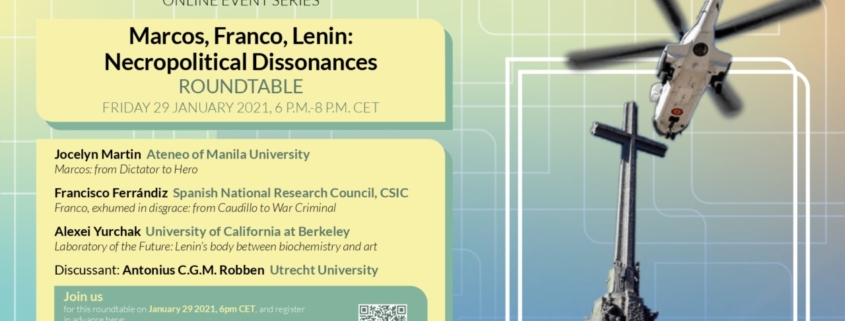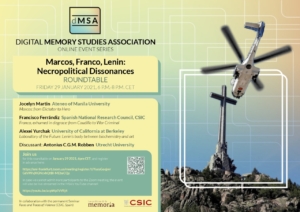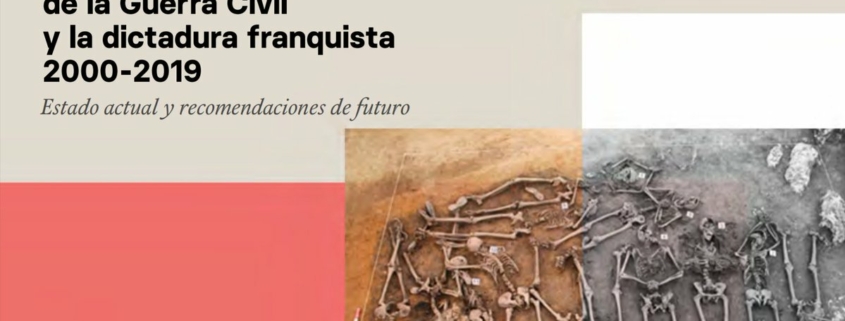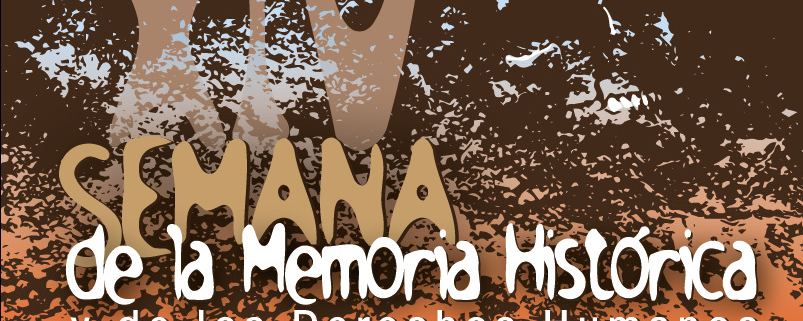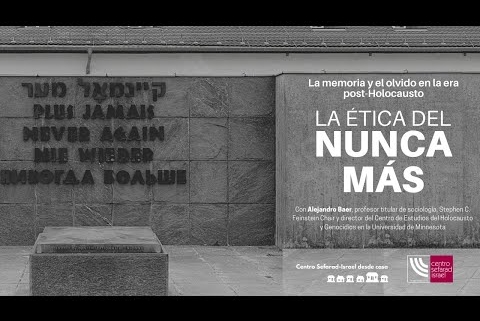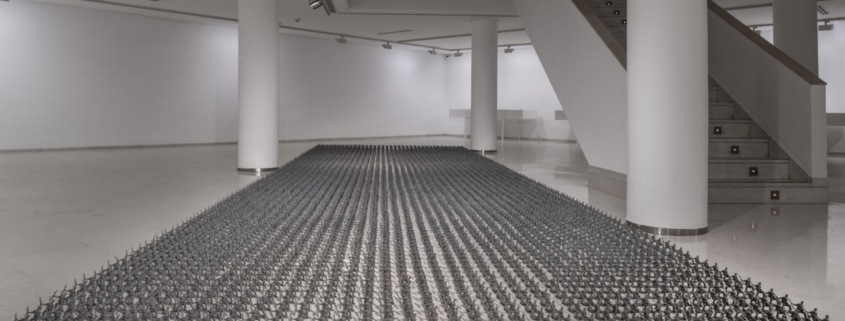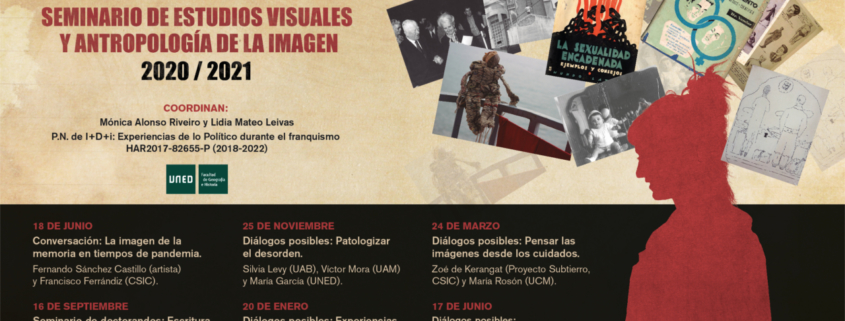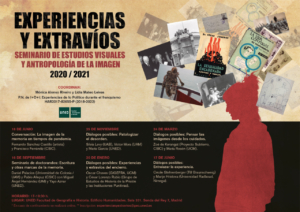
International congress
Bodies out of place: Mass Violence, Mass Graves and Necropolitics.
From 18 July to 21 July 2018
Summer Courses UPV/EHU.
Scientific management: Francisco Etxeberria, Francisco Ferrándiz
Organizing committee:
Cursos de verano UPV-EHU, Marije Hristova, Zoé de Kerangat, Laura Martín-Chiappe, Laura Langa y Miriam Saqqa.
Presentation:
MEMORY POLITICS IN CONTEMPORARY SPAIN
Convener:
Aintzane Ezenarro (Gogora)
Participants:
Fernando Martínez López (Director General de Memoria Histórica del Gobierno de España)
KEYNOTE 1:
Alexei Yurchak (University of California, Berkeley/Institut d’Etudes Avancées, Paris) “Lenin’ body between forensic and art”
Session 1: Old Violences Exposed:
Chair: Amaia Goenaga (Gogora)
Lourdes Herrasti (Aranzadi): The Archaeology of Exhumations.
Zoé de Kerangat (CSIC/UAM): Exposed Bodies and Pre-Forensic Rituals: Exhumations of the Victims of Francoist Repression during the Spanish Transition.
Antonius Robben (U Utrecht): Coping with Massive Urban Death: Mourning and Recovery during the German and Allied Bombing of Rotterdam.
Élisabeth Anstett (CNRS-Adés, Marseille): Silent Stocks: On Long Lasting Clandestine Mass Graves in Post-Soviet Russia and Elsewhere.
Session 2: Exhumaciones en el ámbito legal / Exhumations within Legal Realms:
Chair: Laura Pego (UPV-EHU)
Francisco Etxeberria (UPV-EHU/Aranzadi): The Role of Aranzadi in the Exhumations of Graves of the Civil War.
Sévane Garibian (U Genève): Ley y restos humanos. En busca de un estatus jurídico / Law and Human Remains: In Search of a Legal Status.
Stephanie Golob (CUNY-Baruch, NY): Inside Out: Transnational Legal Learning and Mass Grave Exhumation / De la fosa al mundo.
Derek Congram (U Toronto): “In the Meanwhile”, Until When?: Immediate Meassures for the Recovery of the Victims of the Colombian Conflict.
Session 3: Exhumaciones en el sur global / Exhumations in the Global South:
Chair: Marije Hristova (CSIC)
Laura Langa (CSIC/UAM): Spiritualities and Materialities Around Death: The River Atá as a Moving Grave and Live for the Yu´luuçx (Colombia).
Luis Fondebrider (EAAF): Social and Technical Aspects of Exhumations in Timor and Central African Republic.
Carolina Robledo (CIESAS D.F., México): Citizen-led Exhumations without “Truth” and “Justice?: Dilemmas around Cooperative Work with “Las buscadoras de El Fuerte” (Sinaloa, México).
Session 4: Aspectos religiosos de las exhumaciones / Religious Aspects of Mass grave Exhumations:
Chair: Ulrike Capdepón (U Konstanz/Princeton)
María García Alonso (UNED): The Power of Bones: Religious and Profane Uses of Spanish Civil War relics.
Miriam Saqqa (CSIC): Investigating the Biopolitics of Francoism: From the Corpse to the Archive.
Marije Hristova (CSIC) y Monika Zychlinska (U Warsaw): Łączka in a Jar: Devotion and Sacralization in Mass Grave Exhumations of the Cursed Soldiers in Poland.
Germán Labrador (U de Princeton): The Memory and the Stone: Francoist Repression y Popular Art In Postwar Galicia.
Session 5: Exhumaciones y fantasmagorias / Ghostly Matters and Exhumations:
Moderación / Chair: Alejandro Baer (U Minnesota)
Paul Sorrentino (Max Planck Institute): Exhumations and Spiritualist Rituals in Contemporary Vietnam.
Mariana Tello (CONICET, Argentina): Stories of (Re) Apparition: Disappearances and Mass Grave’s Ghosts.
Francisco Ferrándiz (CSIC) / Julián López García (UNED): Graves, Exhumations and Paranormal Memories.
Session 6: Kinship Relationships around Mass Graves:
Chair: Stephanie Golob (CUNY-Baruch)
Maria Laura Martín-Chiappe (CSIC/UAM): Political Empowerment in Family Claims.
Alfonso Villalta (UNED): Enmity and Help on the Eve of Death
Zahira Aragüete (U Genève): Remaking Familiar Identity through the Contested Archival Trace in Extremadura.
Victor Toom (Goethe University): Forensic identification of 9/11 victims in New York: Labs, Families and Politics.
Session 7: Exhumations and Sovereignty:
Chair: Marije Hristova (CSIC)
Queralt Solé (U Barcelona): Bertrán de Quintana, the Judge of the Clandestine Cemeteries in Catalonia (1937-1938).
Sarah Wagner (Georges Washington U): Marking Presence, Absence, and Those in Between: A Story of Vietnam War MIA Accounting, Fifty Years Afterwards.
Isaías Pérez-Rojas (Rutgers U): Sovereignty in Ruins: Necropower, Necro-governmentality, and the Figure of the People in Peru’s Post-War Andes.
Natan Sznaider (Academic College Tel-Aviv): Guilt: The Materiality of a Sentiment.
KEYNOTE 2:
Eyal weizman (Goldsmiths U): Forensic architecture.
Session 8: Representations of the Forensic Turn:
Chair: Daniel Palacios (U Köln)
Jean-Marc Dreyfus (U Manchester): A Discreet Visual Culture: Photos of Exhumations in Post-WWII Germany.
Lee Douglas (Museo Reina Sofia): Over, On, In: Forensic Vision and the Iconography of Recuperation.
Ulrike Capdepón (U Konstanz/Princeton): Monumentality and Forensic Turn: Current Debates about the Representation of the Dead in Madrid.
Alejandro Baer, Brieanna Petersen y Joe Eggers (U Minnesota): From “Massacres perpetrated by the Sioux” to the “Dakota Genocide”: Conflicting Representations of Minnesota’s “Forgotten War”.
Session 9: Silences, disappearances and atopias
Chair: Zahira Aragüete (U Genève)
Jose Luis Prieto (Consejo Médico Forense): Clandestine Migration in the Mediterranean from a Forensic Perspective: a Silent Catastrophy.
Gabriel Gatti (UPV-EHU): The (Confused) Body of the Living Disappeared: Images of Melilla, Mexico and Uruguay.
Zuzanna Dziuban (U Konstanz/U Amsterdam): Atopic Objects: The Afterlives of Golden Teeth Stolen from the Holocaust Graves.
Mesa 1: New challenges in forensic science: from crime scene to humanitarian intervention:
Convener:
Francisco Etxeberria (UPV-EHU/ Aranzadi)
Participants:
Francisco Etxeberria (UPV-EHU/ Aranzadi)
Morris Tidball (U Coimbra y Milán)
Mercedes Salado (EAAF)
Lourdes Herrasti (Aranzadi)
Luis Fondebrider (EAAF)
José Luis Prieto (Consejo Médico Forense)
Fernando Serrulla (Asociación Española de Antropología y Odontología Forense)
Ignasi Galtés (Aranzadi-UAB-IMLCFC)
Mesa 3: Políticas de memoria contemporáneas en el Estado español / Memory Politics in Contemporary Spain
Coordinación / Convener: Aintzane Ezenarro (Gogora)
Álvaro Baraibar Etxeberría (Director general de Paz, Convivencia y Derechos Humanos del Gobierno de Navarra)
Javier Giráldez (Director General de Memoria Democrática de la Junta de Andalucía)
Eduardo García-Leonardo Tobarra (Jefe del Servicio de la Dirección General de Reformas Democráticas y Acceso a la Justicia Generalitat Valenciana)
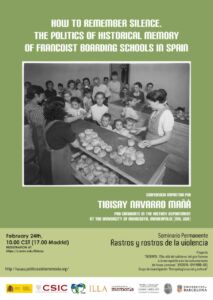 Conferencia impartida por:
Conferencia impartida por: 
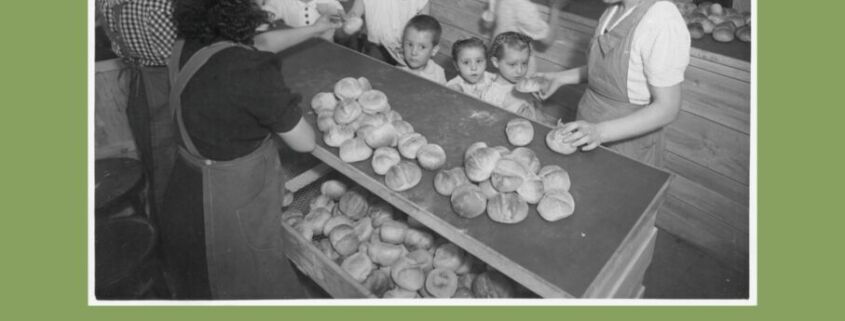
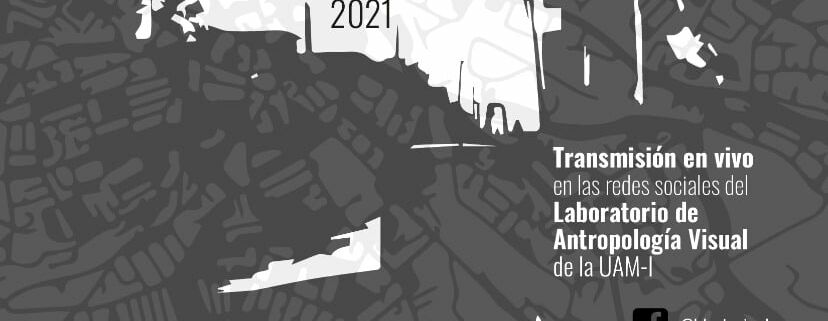
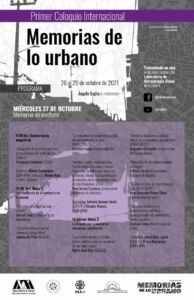

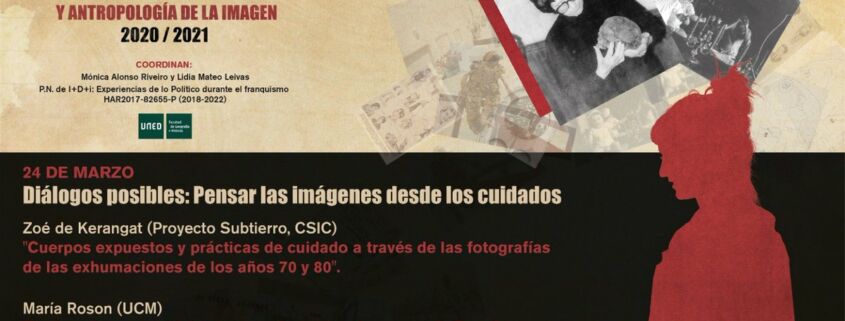
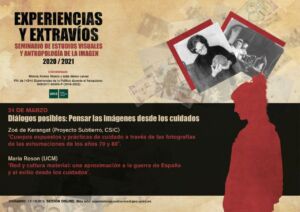 Diálogos posibles:
Diálogos posibles: